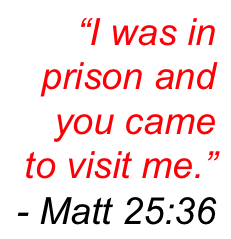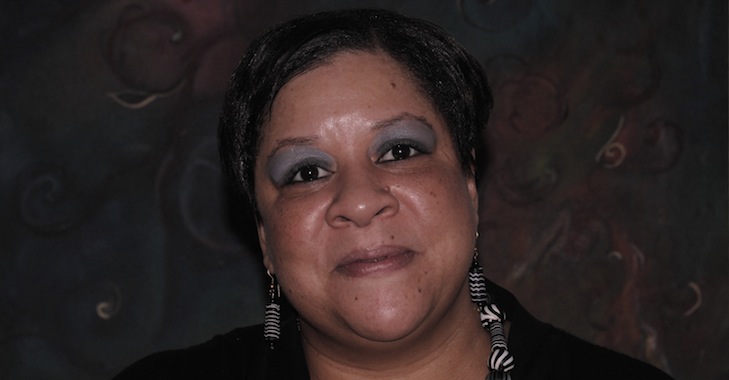Kim Brown was in the first graduating class of Project Turn—a course, in partnership with Duke Divinity School, offering seminary-style writing classes inside of North Carolina prisons. Today Kim continues to serve ex-offenders and their families in Raleigh.
How would you describe Project Turn to somebody who doesn’t know about it?
Project Turn is a class that takes divinity students and those who are incarcerated and puts them in an atmosphere of intense educational development. The reason I describe it as that is because everyone is reading material that they would not normally read. It is mostly autobiographical works. They are very serious and they are very strong. It is wonderful to combine the groups in discussions of these books and see the different viewpoints and how everyone falls in response to these readings. The readings can go from the autobiography of Chuck Colson to Malcolm X and Anne Lamott. Slave narratives. Just a lot of very diverse interesting autobiographical work.
What does come to mind as you think back on the differences in responses? Was there any response that was eye opening for you in terms of the way inmates might see something one way and—
First of all, let’s not call them inmates. Let’s call them ex-offenders or those that have been incarcerated. The women in the prison. The ladies in the prison.
Thanks. I needed to be schooled.
It is just used in such a derogatory term within the prison system that I prefer not to carry that on.
I would say the most eye-opening thing is really the reading and what comes forth out of it. That is the catalyst of everything. In the conversations, you see the diversity. You see some naivety from the Duke students, but you see some naivety from those who have been incarcerated, the ladies, as well, because they are being exposed to a lot of new things with these readings and writings and reflections. Everybody kind of gets that light bulb moment in these groups. I think there was surprise as far as the depth of intellect that was behind the walls in conjunction with those that are Duke Divinity Master students. That is a very interesting dynamic.
It is wonderful to hear everybody’s papers. You are required to read a book each week and required to respond to that. It could be a critical thought paper. It could be a regular term paper. It could be that you respond poetically. It is a lot of work actually. For someone who is incarcerated, it is even harder work because a Duke divinity student can go home, research it, type up their paper, etc. Those that are incarcerated have to sit and write their papers. That is a lot of work for somebody to handwrite a paper and make it nice and neat. I respect those that do participate in the program there because it takes a lot of effort for those who are incarcerated.
Tell me how you heard about the program. How it was presented and what made you say yes?
First of all, everything that goes on in prison is put on the bulletin board. You fill out an application and turn it in and you were selected. What made me decide to go? I am a life-long learner. I have always been involved. When I was there, I was president of the choir. I worked fulltime in the Department of Agriculture in the director’s office. I was in charge of various programs throughout the year. I was very active in the church in various programs. Whatever it was they had, I took it. Everything. There is no class or anything that I didn’t take. It was an opportunity for me to get free good books. I love to read. Also, it was an opportunity for me to find something to see what type of talent I had for writing.
 What was the most meaningful book or writing assignment for you?
What was the most meaningful book or writing assignment for you?
The most meaningful assignment would be the final assignment. That is when you are writing your memoir. It is when you are writing about your personal journey and your personal story. A completely autobiographical piece. Of course, that is meaningful to everybody because you are finally writing your story and sharing it. Because we were the first class, we were able to actually publish. So, there is a book.
I am curious, how would you describe the impact on you and the impact that you saw in the lives of other women as well?
For a lot of women, it was freeing to final tell your story, and for someone to hear it and respond to it. I think it liberated everyone in the class in terms of telling their personal truths. That is really important especially in the atmosphere of someone being incarcerated.
Besides finding the right language—like me not saying “inmates”—what do folks in the church today need to know about men and women who are incarcerated, or who are transitioning?
My top one or two would be that, by the grace of God, we all know we’ve done something and you just didn’t get caught. So first of all, stop being a judge. Only God can judge. Church is not for saints. Church is for sinners. In other words, this is equivalent of a hospital. Hospital is not for well people. It is for sick people. Same with church. So, stop thinking you are so holy and so good. You need to stop being so judgmental. That is first.
Secondly, do something. Stop the madness. I am sick of churches telling me that they only help members or attenders. Where does the bible say that? I get that people have limited resources in their churches, but come on. Let’s stop it. There is more you can do. There is more we all can do instead of doing our little perfect tithe and getting our little envelope. No offense, but half the time the church doesn’t need that money. They want that money. So, expand to have programs to do this. There are people that need that money. I would say to all churches out there: half of every collection, start a fund. You have enough to cover those church bills. Half of that give back. It is for the poor. That’s what we were directed to do. This is the work we were directed to do.
Learn more about Project Turn.

